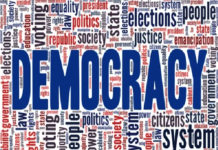During a nighttime walkabout in Tunis, President Kaïs Saïed on Saturday evening announced the appointment “as soon as possible” of a new government and spoke of an upcoming reform of the Constitution; that’s how the newspaper ” Jeune Afrique” began its article entitled ” Tunisia: Kaïs Saïed evokes a reform of the Constitution” and published this Sunday, september, 12 th, 2021.
A new government will be “formed as soon as possible” after “the selection of the most honest personalities,” Kaïs Saïed told Wataniya and Sky News Arabia televisions, stopping in front of the microphones of both channels to answer a few questions after having strolled, under guard, on avenue Bourguiba.
“Amendment of the Constitution”
The head of state did not give a specific date for the formation of the government.
He added “We are continuing to search for personalities who will take on this responsibility.”
Kaïs Saïed also referred to the 2014 Constitution, saying that he “respects it but that we can introduce amendments to the text”.
According to him, “the Tunisian people have rejected the Constitution” and “the Constitutions are not eternal”.
In his view, therefore, it is necessary to “amend while respecting the Constitution”, bearing in mind that “sovereignty belongs to the people”.
Fears of an “authoritarian drift”
In recent days, numerous media have speculated on the forthcoming announcement of a provisional government followed by a revision of the Constitution before being submitted to universal suffrage via a referendum, before new parliamentary elections.
On July 25, Kaïs Saïed sacked the head of government, suspended the activities of Parliament and also seized the judiciary, for a renewable month before extending these measures on August 24, “until further notice”.
Legal theorist and teacher, Kaïs Saïed has presented himself since his surprise election by a large majority at the end of 2019 as the ultimate interpreter of the Constitution.
He relied on the article 80, which envisages exceptional measures in the event of “imminent danger” to national security, to justify the decisions taken more than a month and a half ago.
Many Tunisians welcomed them with enthusiasm: exasperated by their political class, they expect strong action against corruption and impunity in a country facing serious social and economic difficulties.
But opponents, political parties, magistrates and lawyers fear an “authoritarian drift”.
Translated from “Jeune Afrique”











